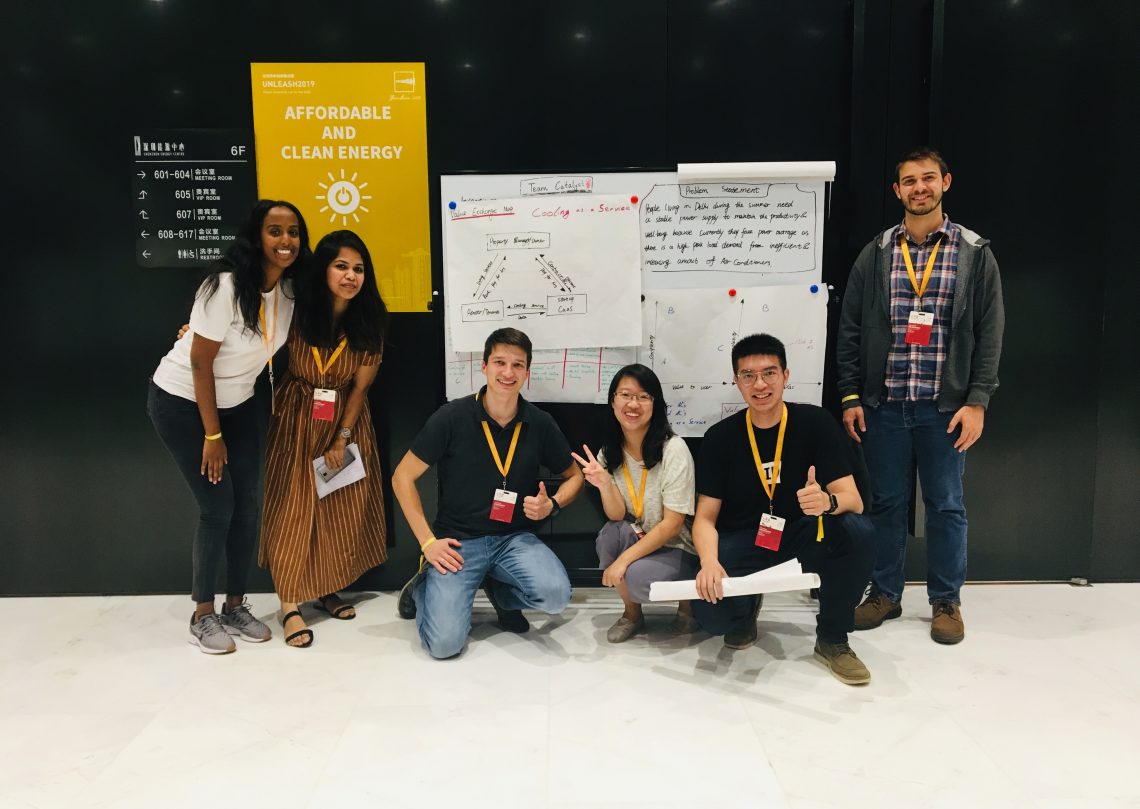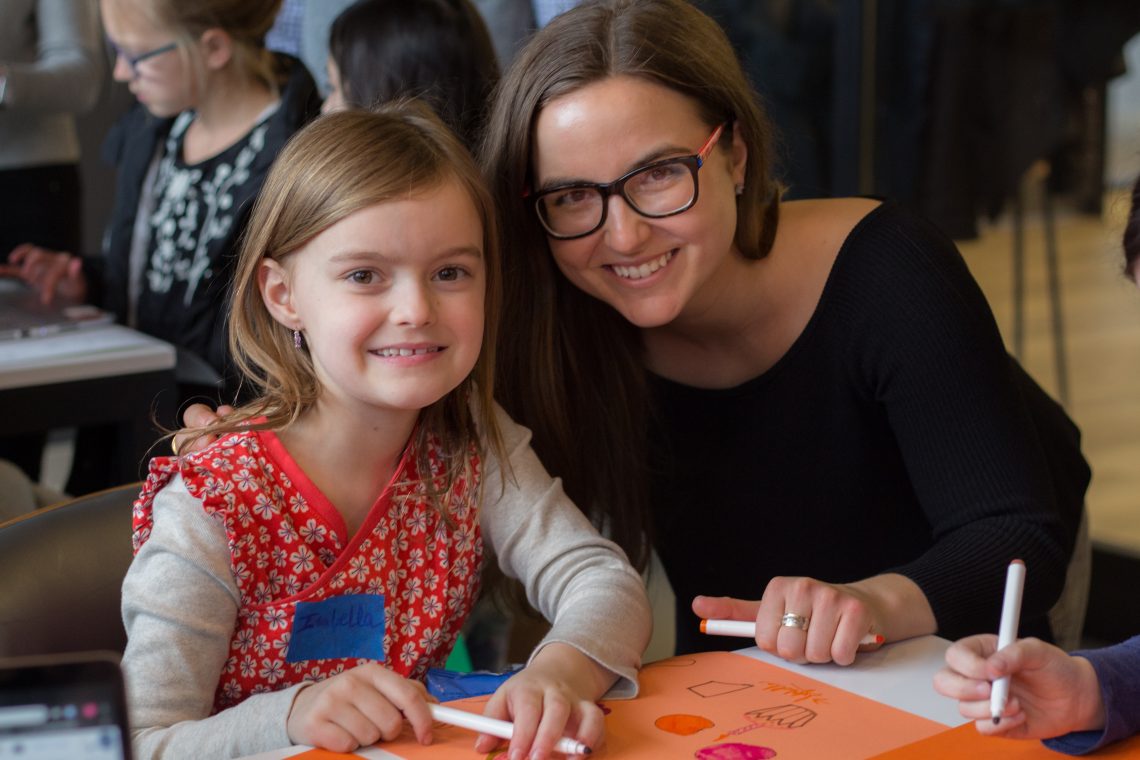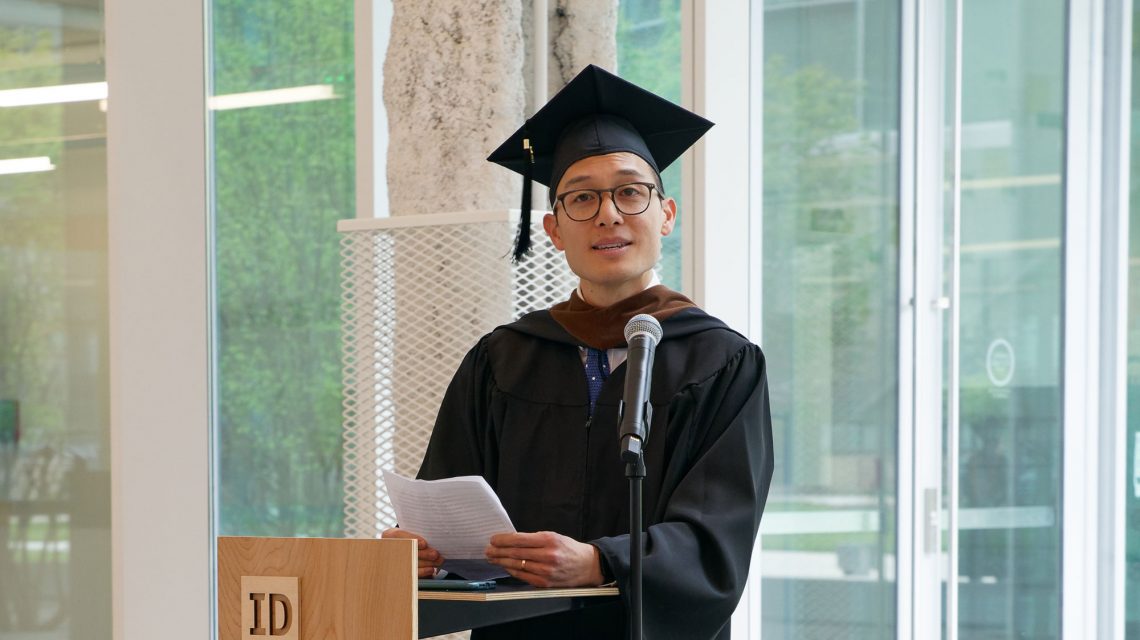ID students Tackle Sustainable Development Goals at UNLEASH
By Andrew Connor
January 16, 2020

Back on January 1, 2016, the United Nations launched an ambitious roster of 17 goals addressing the world’s most pressing issues, from eliminating poverty and hunger to providing gender equality and economic growth. Called the Sustainable Development Goals (SDG), they’re intended to guide governments and other entities worldwide toward resolving societal ills that plague both developed and developing nations.
Created in 2017, UNLEASH is a global innovation lab and nonprofit organization that brings together innovators from across the globe to propose new solutions that work toward accomplishing the SDGs. Every year 1,000 “talents”—entrepreneurs, intrapreneurs, academics, and technical experts—are invited to take part. For 2019, two ID students, Renjie Li (MDes 2019) and Divya Iyengar (MDes 2019), were chosen from more than 8,000 applicants to convene for UNLEASH’s 10-day program hosted in Shenzhen, China.
As participants in UNLEASH’s 2019 program, Li and Iyengar chose which SDG they wanted to focus on and then were partnered with a group. Iyengar chose to work on Industry, Innovation, and Infrastructure, while Li focused on Affordable and Sustainable Energy, a choice that he says was influenced by his work on a collaborative project with Franklin Energy Consultancy in his Multidisciplinary Prototyping course at ID.
Specifically, Li and his teammates directed their efforts at alleviating the frequent and prolonged blackouts in New Delhi caused by the overuse of inefficient air conditioners in the city, which, according to two studies—one by Maharashtra Electricity Regulatory Commission and another by India’s Bureau of Energy Efficiency—are responsible for 40 to 60 percent of the energy usage in large Indian cities.
“Our solution was to launch a service where, rather than residents or a property manager having to buy an air conditioner, they could just rent a cooling service,” said Li. “The thing about many people living in New Delhi is that they don’t have much money to buy newer, more efficient air conditioners, so making those units accessible through renting can reduce energy usage and put less of a burden on the grid.”
Meanwhile, Iyengar’s team focused on promoting innovation through enhancing the curriculum at technical and vocational education training schools in Kenya and by procuring buy-in from companies that would stand to benefit from hiring the schools’ graduates, thus providing better value to both employers and students.
“We looked in Kenya because in those schools there’s a chunk of the population that, if they don’t go to high school or drop out, they’re going to these institutions but are not getting placed in the correct jobs, despite the fact that there is a ton of foreign investment and foreign presence in those specific areas,” says Iyengar. “We were wondering what the skills gap there was and what we could do to fill it.”
The work produced at UNLEASH is meant to be more than just a thought exercise. Because UNLEASH partners with more than 200 companies, institutions, and organizations, participants network with government officials, UN diplomats, industry experts, and other mentors and see a direct pathway to implementing their ideas in the real world.
Renjie and Divya see ways in which their ideas could materialize. For Divya, that means reconvening with her fellow group members to revamp their initial concept.
“Our team is going to have a call sometime soon to go over what parts of our proposal mattered most to us,” she says. “One individual is in Kenya, so we want to keep the market the same. But we want to digest everything that worked, what didn’t, what elements really resonated, and then ground that in more research to tweak our approach.”
Both Li and Iyengar graduated in December, so their participation in UNLEASH was a timely way to cap their ID experience, and gave them both a real world, international scenario in which to apply the design skills they developed. And given that international environment, it challenged them to adapt their knowledge of design to work with global partners.


